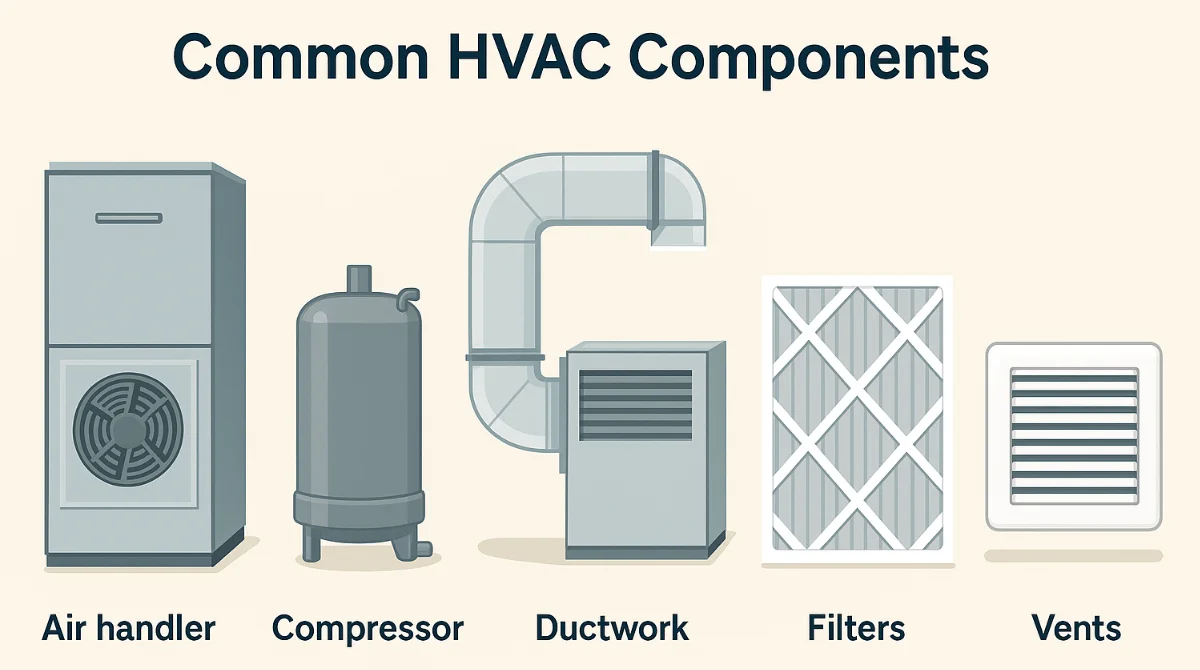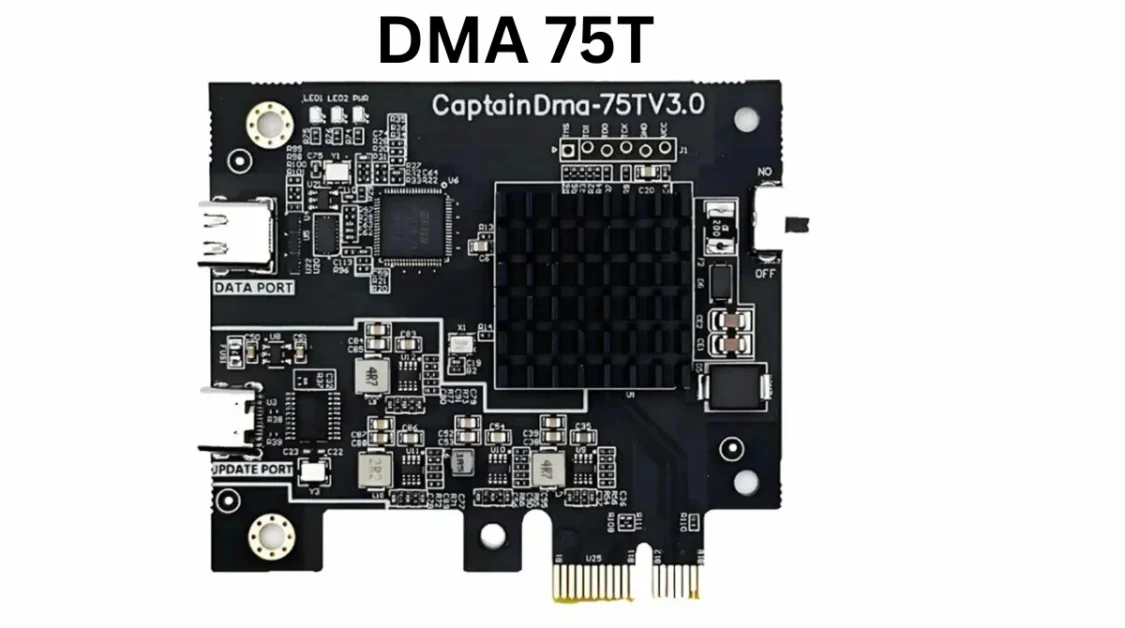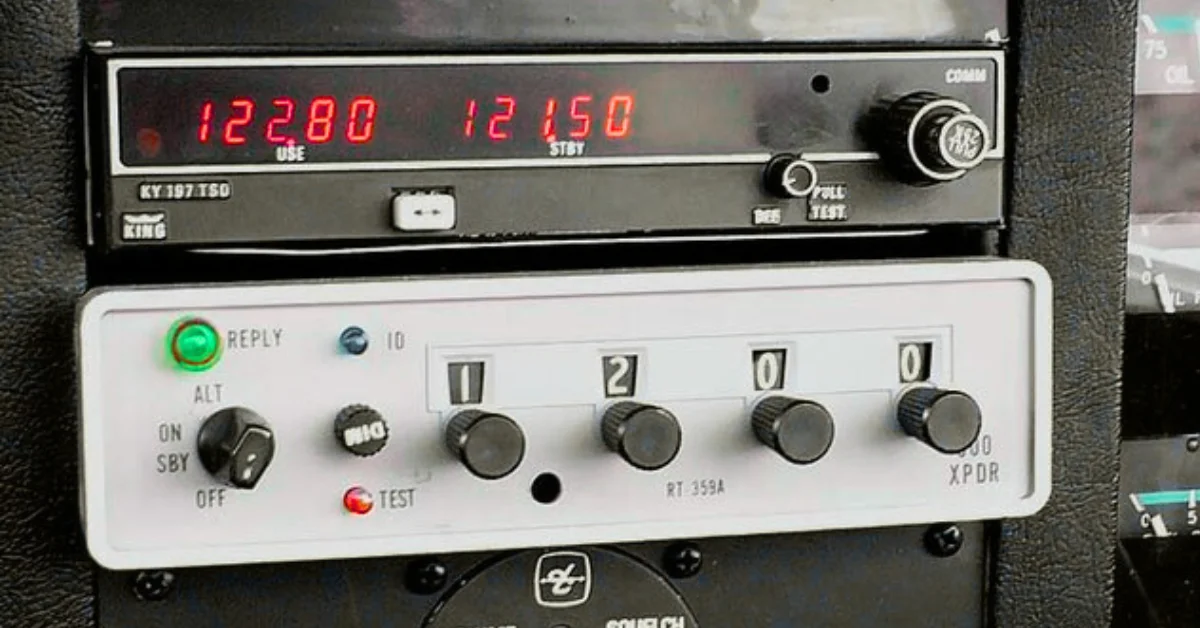If you’ve ever wondered what keeps your home cool in summer and warm in winter, the answer is probably your HVAC system. Heating, ventilation, and air conditioning are referred to as HVAC. These systems control the temperature, airflow, and indoor air quality in homes, offices, stores, factories, and other buildings.
Why HVAC Matters?
We live in a world where indoor comfort is a basic need. Whether it’s freezing cold outside or extremely hot, HVAC systems help keep the indoor environment comfortable. They also help with ventilation, which is important for fresh air and removing stuffy air or bad smells. In short, an HVAC system helps maintain a healthy, safe, and comfortable indoor environment.
What Does HVAC Stand For?
- Heating: This part of the system is responsible for keeping you warm during cold weather.
- Ventilation: This ensures that the air inside your space is clean and fresh by circulating air and removing unwanted moisture, smells, and contaminants.
- Air Conditioning: This cools the air during hot weather and controls humidity levels for comfort.
Now let’s discuss the each part of HVAC and how it works.
Thermostats: The Brain of HVAC
A thermostat is a small device on your wall, but it controls the whole HVAC system. It lets you choose the temperature and can turn the system on or off as needed. There are now smart thermostats that learn your habits, adjust automatically, and can be controlled with your smartphone. This keeps your house cozy while saving money and energy.
Types of HVAC Systems
There isn’t just one kind of HVAC system. Depending on your home, climate, and needs, there are different setups available:
- Split Systems: Most common, with one part for heating and one for cooling.
- Hybrid Systems: Use both electricity and gas to save energy.
- Duct-Free Systems: Also known as mini-splits, these are great for homes without ductwork.
- Packaged Systems: All-in-one systems that contain heating and cooling parts in a single unit.
Each type has its own pros and cons depending on how much space you have, how big the building is, and what kind of weather you live in.
Common HVAC Components

To better understand your HVAC system, it’s good to know the basic parts:
- Air handler: Moves air throughout the building.
- Compressor: Found in air conditioners, it compresses refrigerant to help it cool the air.
- Ductwork: Carries air to different parts of your home.
- Filters: Trap dust, allergens, and other particles.
- Vents: Let the air enter and leave each room.
Regular maintenance of these parts is essential for the system to run smoothly and efficiently.
Benefits of an HVAC System
Here’s why installing and maintaining an HVAC system is a smart idea:
- Comfort all year round
- Better indoor air quality
- Energy efficiency (if maintained properly)
- Quiet operation
- Boosts property value
These systems are no longer a luxury they are a necessity in modern living, especially in areas with extreme temperatures.
HVAC Maintenance Tips
Use these easy tips to maintain the optimal performance of your HVAC system and prevent unexpected malfunctions:
- Change air filters every 1–3 months
- Clean ducts and vents regularly
- Schedule yearly inspections with a professional
- Check your thermostat settings
- Make sure nothing blocks vents or returns
Proper care not only extends the life of the system but also reduces energy bills and helps avoid costly repairs.
Energy Efficiency and HVAC
Many people worry about the cost of running heating and cooling systems. Fortunately, a lot of contemporary HVAC systems use less energy. Look for systems with the ENERGY STAR label and high SEER (Seasonal Energy Efficiency Ratio) ratings.
Using programmable or smart thermostats, sealing leaks in ductwork, and upgrading old equipment can greatly reduce energy use. Both the environment and your pocketbook will benefit from this.
HVAC System Selection
Comfort and cost are two factors to consider when selecting an HVAC system.The best system for your home or building depends on a few simple but key factors. Making the right choice means you’ll enjoy better air quality, lower energy bills, and fewer problems down the road.
Here’s what to consider when selecting an HVAC system:
- Size of the space: A system that’s too small won’t heat or cool properly. An excessively large one could squander money and effort. Getting a professional load calculation is the best option.
- Climate zone: Areas with hot summers may need a strong cooling system, while cold regions require better heating options. Heat pumps work well in moderate climates.
- Energy efficiency: Always look for units with high SEER ratings for cooling and AFUE ratings for heating. Long-term financial savings are achieved by energy-efficient models.
- Type of building: Is it a home, office, apartment, or warehouse? Each building has unique heating and cooling needs, and not all systems are suitable for every structure.
- Ductwork availability: If your building doesn’t have ducts, consider ductless mini-splits or packaged systems that don’t require them.
- Budget: Take into account both the initial outlay and ongoing energy consumption. A cheaper unit might cost more in electricity bills over time.
- Smart features: Modern systems often come with smart thermostats, zone control, or remote access via smartphone apps.
It’s a good idea to talk with a certified HVAC technician. They can inspect your space, understand your needs, and recommend the best system. Investing in the right HVAC setup from the beginning saves a lot of trouble later on and helps maintain indoor comfort throughout the year.
Common HVAC Problems and Solutions
Even the best HVAC systems can face issues. Knowing the common problems helps you act fast and avoid bigger damage.
- Clogged filters: This can block airflow.
- Solution: Change the filter every 1–3 months.
- Refrigerant leaks: Causes poor cooling.
- Solution: Call a professional to repair and refill the refrigerant.
- Broken thermostat: Might cause the system to stop working or run constantly.
- Solution: Replace or reprogram it.
- Dirty coils: Can reduce efficiency.
- Solution: Schedule coil cleaning during routine maintenance.
- Unusual noises: May indicate loose parts or motor issues.
- Solution: Have it checked immediately to avoid further damage.
Timely repairs and regular service are the best ways to keep your system running smoothly.
Conclusion
HVAC systems play a vital role in daily comfort, yet we often overlook them until problems arise. Understanding how they work helps you make smarter choices for your home or office. Whether you’re upgrading or building new, consult a professional to choose the right system for your needs. A good HVAC setup ensures comfort, energy savings, and clean air making it a smart long-term investment for your health and home.



